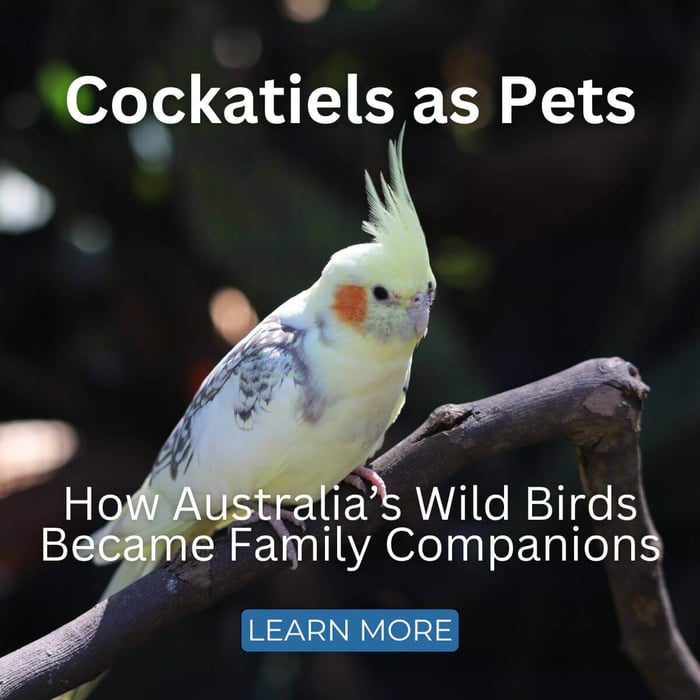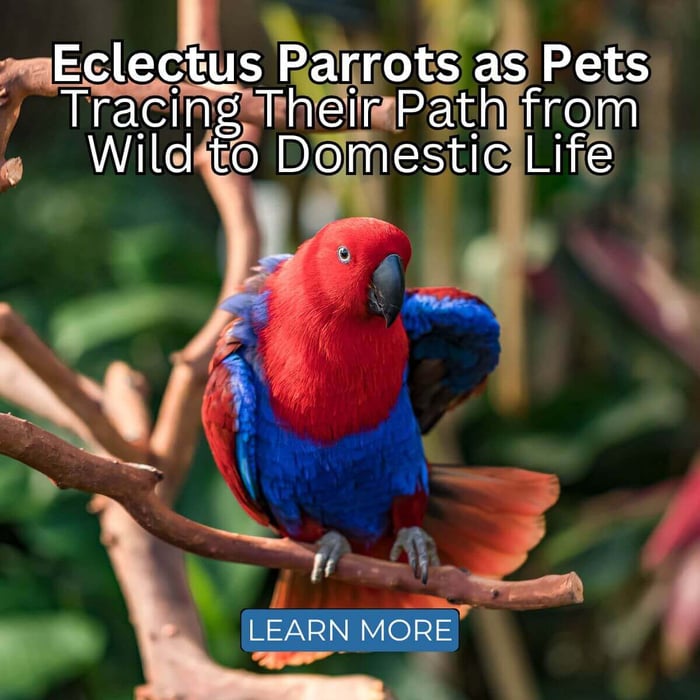Macaws as Pets: What It's Really Like to Own One
At Parrot Essentials, we mark July 18th as Macaw Day, a special occasion to celebrate these spectacular birds and reflect on what it truly means to have macaws as pets. Having a macaw as a companion means embracing a colourful, intelligent, and sometimes challenging parrot with a unique personality. If you're wondering whether having macaws as pets is right for you, this guide will walk you through everything you need to know, from their fascinating history and behaviour to essential care tips and preparation.
What It's Like Having Macaws as Pets: A Brief Overview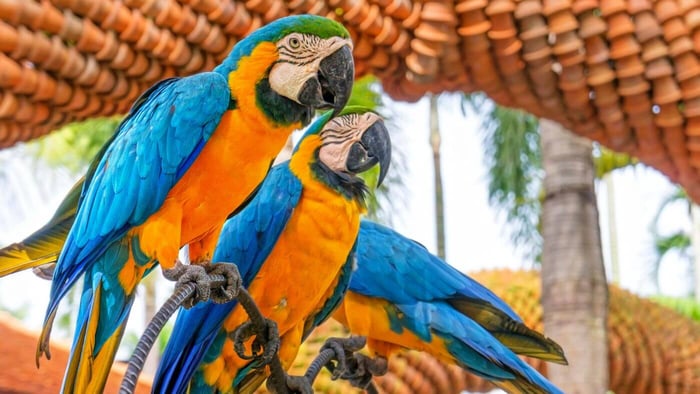
In short, macaws are large, vibrant parrots native to Central and South America, known for their dazzling feathers and remarkable intelligence. They have been companions to humans for centuries, prized not just for their beauty but also for their strong social bonds and playful nature.
Owning a macaw means respecting their wild instincts and providing an environment that supports their mental, physical, and emotional health. They're not just pets, they're lifelong partners who require attention, space, and specialised care.
Considering a macaw? Explore our range of large parrot care products to get started.
A Brief History of Macaws as Pets
Macaws have shared a relationship with humans for thousands of years. Indigenous cultures throughout Central and South America revered these birds, valuing their brilliant feathers for ceremonial dress, symbolic art, and trade. Archaeological evidence shows that macaws were kept in captivity by ancient civilisations such as the Mayans and Aztecs, highlighting their long-standing role as companion animals.
The vibrant plumage of macaws was highly prized and often reserved for nobility or religious ceremonies, illustrating their cultural importance. Over time, their intelligence and social nature made them sought-after pets beyond indigenous communities, eventually becoming popular in Europe and around the world after the Age of Exploration.
Despite domestication, macaws have always retained many wild behaviours. This historical context underscores why, today, macaws as pets require knowledgeable and respectful owners who can meet their complex behavioural and physical needs.
Which Macaw Species Are Commonly Kept as Pets? Choosing the Right One
In short, different macaw species vary widely in size, behaviour, and care demands, making it essential to choose the right one for your lifestyle.
Here's an overview of the most popular pet macaws:
- Blue and Gold Macaw: Medium-large size, affectionate, playful, and excellent at bonding with owners. Suitable for first-time macaw owners willing to commit time and effort.
- Scarlet Macaw: Larger, louder, and more independent. They can be very vocal and require an experienced, confident owner.
- Green-winged Macaw: The largest "true" macaw, known for its gentle, calm nature but needing plenty of space.
- Hyacinth Macaw: The biggest parrot species globally, requiring specialised care and ample room, but deeply loyal.
Choosing the right species helps ensure a happy match and a smoother macaw ownership experience.
How Do Macaws Behave as Pets? Understanding Their Unique Needs
Macaws are highly social and intelligent birds whose behaviour reflects their need for stimulation and companionship. Without adequate engagement, they may develop stress behaviours such as screaming or feather plucking.
Key behavioural traits include:
- Vocalisation: Macaws communicate through loud calls and mimicry, often seeking attention.
- Social Needs: They require daily interaction and mental stimulation to thrive.
- Play and Exploration: They enjoy toys and puzzles that challenge their beaks and minds, helping to satisfy their natural curiosity.
Looking for expert advice? Our blog offers detailed guides on macaw behaviour and nutrition.
Training with positive reinforcement is essential, it builds trust and channels their intelligence into manageable behaviours.
How to Care for Macaws as Pets: Nutrition, Environment & Social Needs
Good macaw care is based on three pillars, nutrition, environment, and social interaction. Neglect any one, and your macaw's well-being may suffer.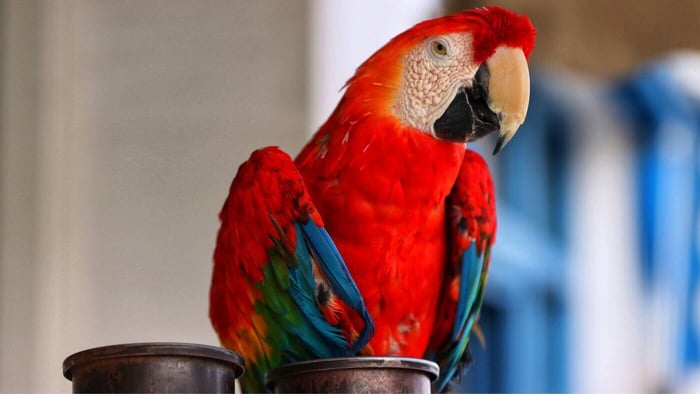
Nutrition: What Does a Healthy Macaw Diet Look Like?
Macaws need a nutrient-rich diet including:
- High-quality pellets formulated specifically for large parrots, providing balanced nutrition.
- Fresh fruits and vegetables to supply vitamins and variety.
- Nuts for healthy fats and enrichment (in moderation).
At Parrot Essentials, trusted brands like Askio Nature Complete Parrot Food Pellets and Low Sunflower Blends for Large Parrots are excellent choices to meet these needs.
Environment: Creating a Safe and Stimulating Home
Your macaw's cage or aviary should be:
- Spacious enough to allow flight and exercise.
- Equipped with sturdy perches of various sizes and textures to promote foot health.
- Filled with safe, stimulating toys that encourage natural behaviours like chewing and foraging.
Social Interaction: Time and Attention Matter
Macaws are social animals requiring:
- Several hours of daily interaction outside their cage.
- Playtime, training sessions, and socialising with family or other birds.
- Consistent routines to build security and trust.
Regular check-ups with an avian vet are crucial to monitor health and prevent illness.
What Challenges Come with Macaws as Pets? A Realistic Perspective
Macaws can be demanding companions. Before bringing one home, consider:
- Noise: They are loud and vocal, often calling multiple times a day.
- Lifespan: Many macaws live over 50 years, meaning a lifetime commitment.
- Space: Larger species need significant room to thrive.
- Behaviour: Their intelligence can lead to behavioural challenges without proper training.
- Cost: High-quality food, toys, vet care, and suitable housing are an ongoing investment.
Ask yourself honestly if you can dedicate the time, energy, and resources they require. Doing so sets you and your macaw up for a rewarding, lifelong relationship.
The CARE Framework for Responsible Macaw Ownership
To make macaw ownership manageable and fulfilling, use this simple CARE framework:
- C – Commitment: Macaws' long lifespans mean you're planning for decades, not years.
- A – Attention: Daily interaction and mental engagement prevent behavioural problems and build trust.
- R – Resources: Invest in quality food, spacious housing, enrichment toys, and veterinary care.
- E – Education: Continuously learn about macaw behaviour, health, and needs to provide the best care.
This framework helps balance all essential aspects of macaw ownership, ensuring your bird thrives.
Preparing to Own a Macaw: Essential Steps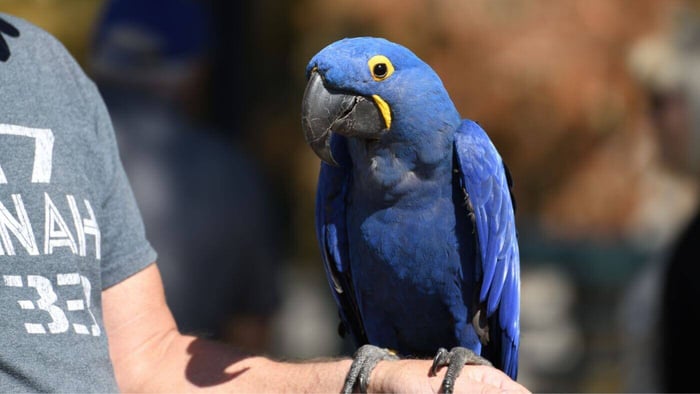
Preparation is key when welcoming a macaw into your life. Follow these steps to set yourself up for success:
- Research species to find the best fit for your experience and lifestyle.
- Ensure your home has adequate space and safe, enriching environments.
- Purchase high-quality food and toys in advance.
- Find an avian vet for regular health check-ups.
- Plan daily interaction time and training schedules.
- Connect with macaw communities and resources to learn continuously.
These steps help you provide a loving, enriching home for your macaw.
Why Choose Parrot Essentials for Macaw Care?
At Parrot Essentials, we know what it takes to care for macaws as pets. Our carefully curated products, from nutritious pellets like Askio Nature to stimulating toys like the Palm Leaf Coloured Spiked Pinata, support your macaw's health and happiness.
Alongside quality products, we offer expert advice and detailed care guides to help you confidently meet your macaw's unique needs.
Celebrate Macaw Day by Prioritising Your Macaw's Well-being
On July 18th, as we celebrate Macaw Day, take the opportunity to prioritise your bird's health and happiness. Whether you're just starting out or looking to improve care, high-quality nutrition, engaging toys, and expert knowledge make all the difference.
Visit our Parrot Care section of the Blog for in-depth advice and inspiring stories from fellow macaw owners. Explore our specially designed product range for large parrots and give your macaw the care they deserve.
Ready to start your macaw journey?
Celebrate Macaw Day with Parrot Essentials, shop premium nutrition and enrichment toys that help your macaw thrive. Our expert team is here to support you every step of the way.
FAQs
Are macaws good pets for first-time bird owners?
Macaws can be rewarding companions, but they’re best suited for experienced or well-prepared owners due to their size, noise levels, and complex care needs.
How long do macaws live in captivity?
With proper care, many macaws live 50 years or more, some even reaching 70+. Owning one is a lifelong commitment.
Do macaws need a lot of space?
Yes. Macaws require large cages or aviaries and regular time outside their enclosures for exercise and interaction.
Can macaws talk?
Many macaws are capable of mimicking human speech and sounds, but their communication is often loud calls rather than clear words.
Are macaws noisy all the time?
Macaws are naturally vocal and may call out loudly throughout the day, especially in the morning and evening. This is normal behaviour for them.


